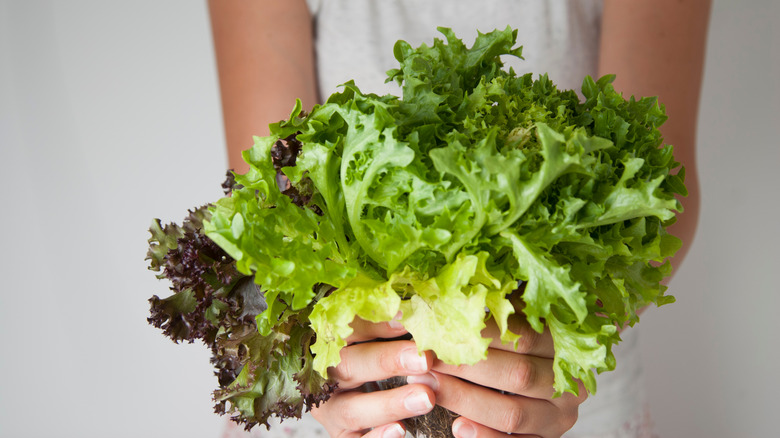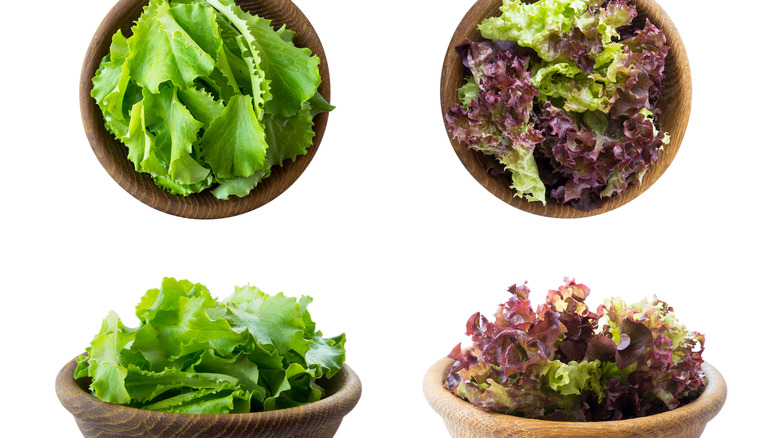Can You Eat Too Much Lettuce?
When it comes to low-calorie foods that offer plenty of nutrients, you can't beat lettuce. While some types of lettuce are more nutritious than others, most types of lettuce offer nourishment of some kind, including vitamins A and K. Vitamin K helps your bones stay strong, and strong bones reduce the risks of fractures. Vitamin A is essential for eye health and can reduce the risk of cataracts, per WebMD. Because lettuce is mainly water, it also helps you stay hydrated.
Lettuce is pretty versatile, too. Of course, you can use it in salads and on sandwiches and burgers, but you can also use lettuce with large, sturdy leaves, like Bibb lettuce, as wraps or tortillas. Some lettuce, such as Romaine and radicchio, are great for grilling. Other kinds, such as watercress and escarole, are delicious in soups, per Parade. Lettuce has a lot going for it, but can you eat too much of it?
The problems with eating too much lettuce
For people on certain medications, one concern about eating too much lettuce is getting too much vitamin K. According to SFGate, people who take drugs that thin the blood should be mindful of how much of the vitamin they consume because it can decrease the medication's effectiveness. If you are concerned about eating too much lettuce and are taking blood thinners, you should talk with your doctor.
Another concern about eating too much lettuce is what you eat with it. If you are eating a lot of fresh vegetables in salads with lettuce, the combination of roughage and raw veggies might cause bloating and other intestinal discomfort, according to Well+Good. In addition, if you eat a lot of lettuce and nothing else, you might find yourself running low on energy because lettuce does not contain very many calories. Likewise, lettuce does not provide many carbohydrates, which give you energy (via SFGate).


